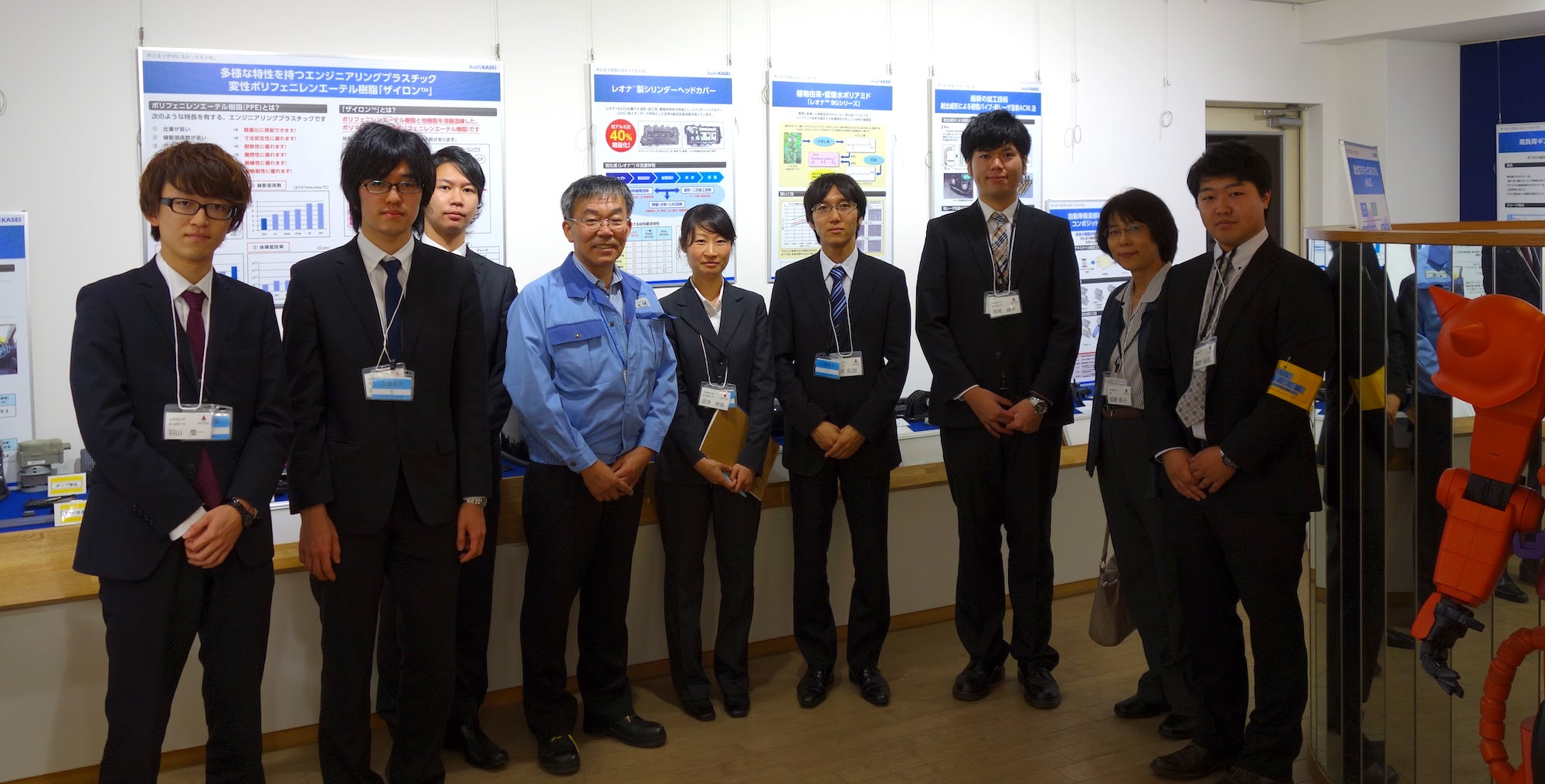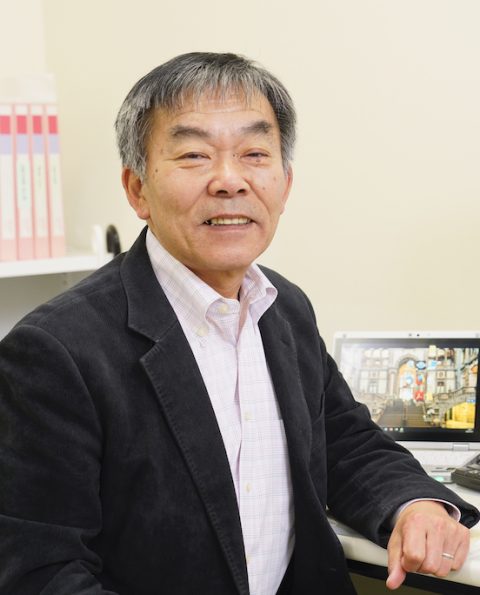企業に就職してから博士号を取得しようとする人が増えている背景について、北海道大学理学研究院客員教授(ALP※1)の七澤淳先生にお話を聞いてみました。
※1 ALP: 北海道大学物質科学フロンティアを開拓するAmbitiousリーダー育成プログラム
伸び続ける社会人ドクターの数
身の回り、といっても目の届く数十人の範囲ですが、高分子新素材を研究する部門で開発をする傍ら、社会人ドクターを目指す人間が現在3人います。学生時代に有機合成を専攻した人が2人、現場で高分子加工に携わってきたのが1人。一時に3人も居るのは初めてで、うち2人は女性です。
会社の現場でそれぞれ開発テーマを抱えながら学位取得を目指すのは、口で言うほど簡単ではありません。社会や時代のニーズに応えようと各社でしのぎを削っている訳ですから、自ずとテーマは似てくるし、研究成果をそのまま論文に投稿すると競争相手に塩を送ることになる。つまり会社での研究成果をもってそのまま学位を、と言うのは無理筋です。従って学位論文は、本業とは別に大学の先生の指導を仰ぎながら文献を読み、実験をしつつ書かねばならず、ある意味ダブルワークを強いられるわけです。自己啓発の位置づけですから、休日や定時後の時間を割くことになり、仕事とプライベートに加え、学業との両立というのは結構つらい。でもこれに挑戦する社員が急速に増えている。誰かが始めると、私も僕もって感じです。
トライアル&エラーの時代の終焉へ
日本の化学会社の博士号にどんなご利益があるか。給与面で優遇されることはあまりなくて、ただ名刺が格好いい、お客様や他社の人たちとの会話や交渉の場面で大切に扱ってもらえる、研究開発現場に籍を置くためのパスポート、等々言われていますが、これらだけで説明できる難行苦行ではないように思います。
我々シニア世代が現役バリバリだった昭和の高度成長時代、高分子新素材開発はブルーオーシャンで、目に見え、手で触れられる範囲の実験でそれなりの成果が出せました。高度な専門性が無くても、思い付きの実験でも、手当たり次第に数をこなせばなんとなく新しげなモノが作れました。24時間働く者がもてはやされた時代です。でも30年以上前のやり方が今に通用するはずがない。
今日の研究手法は当時とは別物です。社会を良くするための素材に求められる課題に、昔も今も大きな違いはありません。言い換えれば、同じテーマでもより質の高い解が求められる。例を挙げれば、昭和の時代に90%だったある化学薬品の純度が、平成には99%が、令和の今は99.9%が当たり前になる。不純物の量を1/10、1/100にする技術が求められます。

ディープアンダースタンディング
高度な解を探すのに、手当たり次第の実験は無力。原理を理解し、より精密な実験や解析を駆使しなければならない。過去を学び、過去にできなかったことを最新の技術で乗り越える事が求められます。ここに必要な力量が博士人材に求められる力量。或る日、現場の若手社員が実験結果を持って上司のところを訪れました。上司は聞きます、この実験は1990年代の某国の誰それの内容と同じだね、何がどう進歩したの? この問いかけに明快に答えられるか。
博士の力量を言い換えると、計算科学や情報科学をも駆使したディープアンダースタンディング。より深く知る、あるいは本質に迫る力。これがないと開発現場では生きていけないと気付いた研究者が、社会人ドクターを目指しているのです。
5人からなる新素材開発のあるチームは、新卒の博士2名、留学先で学位を取得した者1名、社会人ドクター挑戦中が1名。革新素材を目指すには優秀な人材が必要で、今後この様なチームが増えてくると思います。
課程博士のアドバンテージ
確かに研究者としての力量は、社会人となった後でも研鑽できます。しかも各人の担当するテーマに近い領域で。ただこれは利点であると同時に制約となる場合がある。ある領域での超専門家になると、別の領域の課題解決が求められた時、手も足も出なくなるかも知れない。
大学で学位を取得する利点は、研究に専念できる以外に様々な分野の専門家から指導してもらえる事。化学・工学・生物学・数学・物理学等々、専門分野が違えば課題への切り込み方違っていて、課題を広く柔軟にとらえられます。色々な分野の先生と築いた人脈は、自分の専門だけでは手に負えない課題に向き合う時に大きな武器になります。会社の研究チームはテーマオリエンテッドなので、この様な多際性は期待薄。是非、学生の間に深さと同時に広さを身に着けてほしいを思います。

七澤 淳 NANASAWA Atsushi
専門: 高分子合成、高分子物性
趣味: 読書、自転車(やや過去形)
学歴
1974/4〜1977/3 北海道大学工学部合成化学工学科卒業
1977/4~1979/3 北海道大学工学研究科合成化学工学専攻
1991/8~1993/9 McMaster Univ. MIPPT(カナダ オンタリオ州)客員研究員
1995/9~1998/3 芝浦工業大学大学院博士課程地球環境システム専攻
職歴
1979/4~1997/9 旭ダウ~旭化成工業 スチレン系樹脂研究開発
1997/10~2008/3 旭化成ケミカルズ エンジニアリング樹脂 研究開発
2008/4~2011/3 旭化成ケミカルズ 樹脂加工(Film,Foam) 研究開発
2011/4~2014/3 旭化成ケミカルズ 樹脂総合研究所所長
2011/4~2014/12 北陸先端大学 客員教授(インダストリアルアドバイザー)
2011/6~2018/5 高分子同友会(高分子学会関連団体)幹事
2015/1~ 北海道大学 理学研究院 客員教授
